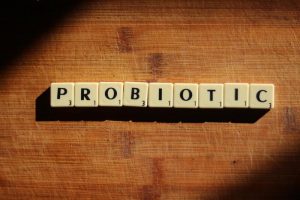What You Should Know About Probiotics
If you’re like most people, you’ve probably heard a lot about probiotics but don’t really know what they are. Probiotics are live bacteria and yeasts that are good for your health, and they can be found in fermented foods and supplements. But what exactly are the benefits of probiotics? Here’s everything you need to know about them!
 What exactly are probiotics?
What exactly are probiotics?
Probiotics are live microorganisms that have health benefits when consumed. They occur naturally in many foods, such as yogurt, kefir, and sauerkraut. They can also be found in dietary supplements. Probiotics help to create a healthy balance of bacteria in the gut, which helps to support digestion and immune function.
Why are microorganisms important for your gut health?
The bacteria in your gut help to break down food, absorb nutrients, and defend against disease-causing organisms. But the balance of bacteria in your gut can be disrupted by poor diet, stress, or certain medications, leading to digestive issues and impaired immune system function. Taking a probiotic supplement may help restore this balance.
What are the benefits of probiotics?
The most well-known benefit of taking probiotics is improved digestive health. Studies have shown that they can help reduce bloating, constipation, diarrhea, and other gastrointestinal issues. In addition, probiotics may help with skin conditions like eczema by improving your skin’s ability to retain moisture and increase its resistance to allergens. Furthermore, they may also help to boost your immune system and reduce inflammation throughout your body.
Are prebiotics the same thing?
No, prebiotics are not the same thing as probiotics. Prebiotics are non-digestible carbohydrates that promote the growth of healthy bacteria in your gut. They act as food for probiotics and help to increase their beneficial effects on your health. Foods that contain prebiotics include garlic, onions, bananas, oats, apples, and artichokes.
How do probiotics work?
Probiotics work by introducing beneficial bacteria into your gut. These bacteria compete with other microbes and can help to create a balance of good and bad bacteria in the intestines. They may also help break down food particles, which helps your body absorb more nutrients from the food you eat.
Are there any risks associated with taking probiotics?
In general, probiotics are safe for most people to consume. However, if you have a weakened immune system or a serious health condition, it’s best to speak with your doctor before taking them. Although rare, some people do experience allergic reactions or side effects such as gas and bloating when taking probiotics.
What types of foods contain probiotics?
The most common source of probiotics is fermented foods like yogurt, kefir, sauerkraut, kimchi, and miso. Other sources include fermented grain products like sourdough bread and tempeh.
Can you get probiotics in supplements?
Yes, probiotics can also be found in dietary supplements. When choosing a supplement, look for products that contain live cultures and are certified by the FDA. It’s best to speak with your doctor before taking any probiotic supplement to ensure it is right for you.
How do you know if it’s a quality supplement?
When choosing a probiotic supplement, it’s important to look for one that contains live cultures and is certified by the FDA. Additionally, you should look for products that are free from artificial preservatives, fillers, and sweeteners.
Taking a probiotic supplement may be beneficial for many people looking to improve their digestive and immune system health. Before taking any supplements or making significant changes to your diet, it’s best to consult with your doctor for advice. With the right information about probiotics, you can make informed decisions about incorporating them into your lifestyle!







